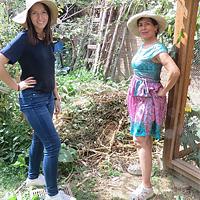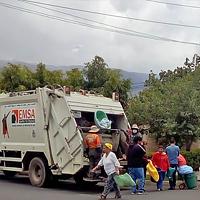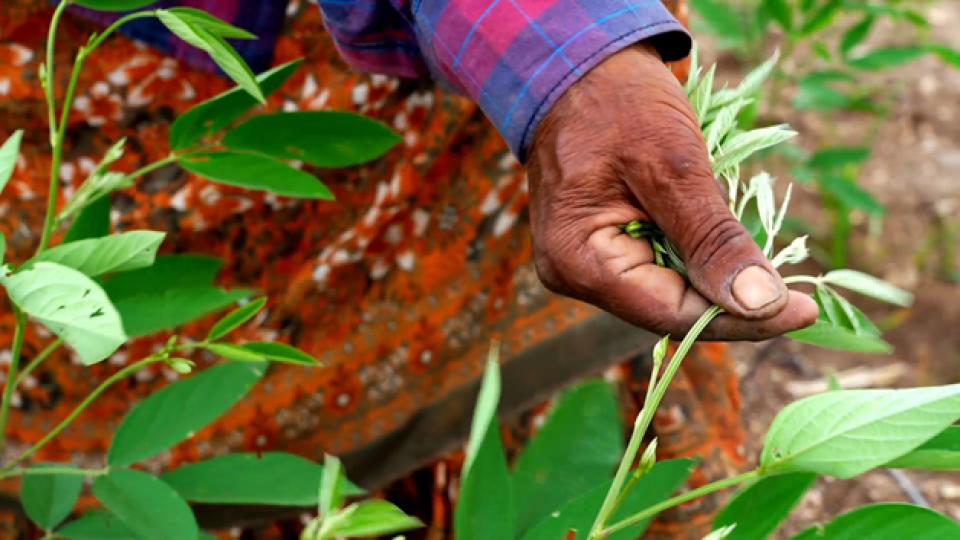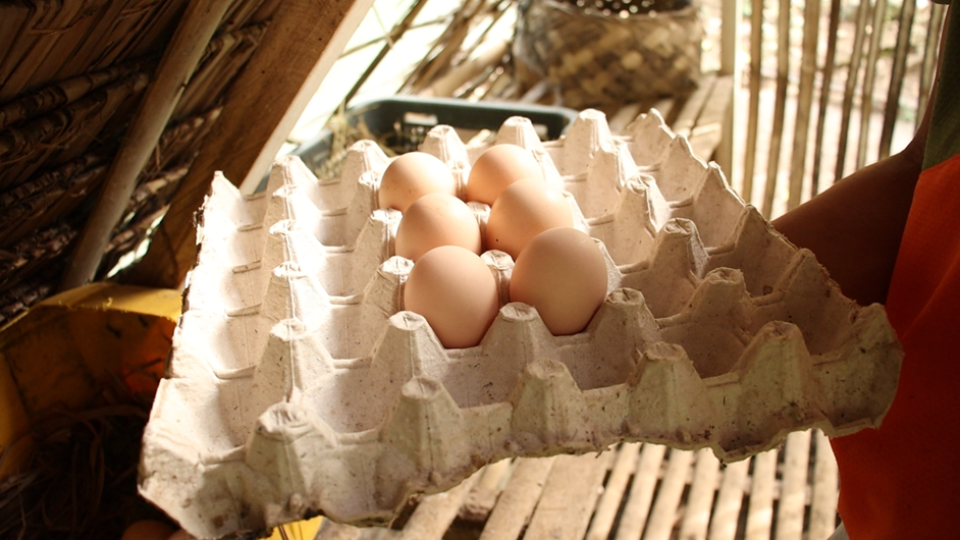

Food waste could be made into useful compost, instead of mixing it with plastic and other inorganic trash, as my wife Ana recently explained on a panel discussion on Radio Cepra in Cochabamba. She was invited by a local NGO, Alerta Verde (Green Alert), along with two agronomists who encourage schools and families to make compost, and a student who is writing his thesis on urban families who compost.
The first two panelists responded to the concerns of city dwellers: how to make compost while avoiding flies, rodents and bad smells. Old ideas from gardening manuals were recycled, such as adding a layer of barnyard manure to the compost, an impractical idea for city people who don’t have livestock.
The panelists on the radio talk show all agreed that the urban garbage is about 70% organic, including paper, garden trimmings and food waste that rots, becoming a smelly sludge that draws flies to the landfill. If the organic refuse could be composted, there would be less nuisance, and less garbage to collect and dispose of.
The moderator, Arnold Brouwer, Ana how she makes compost. She explained to the radio-listeners how we dig a pit and fill it with organic waste from our kitchen. We also add old paper and some garden waste. When the pit is full, we usually cover it lightly with soil and leave it for up to year. Turning the waste definitely speeds up decomposition, and makes compost faster. But shoveling compost is a lot of extra work. At our house we are not in a rush. We can wait a year for our compost to mature.
“So, this is relaxed composting,” Arnold quipped. Ana agreed, but went on to paint a bigger picture. The city has a debt to the countryside. We bring in valuable organic matter, as food, and we let much of it rot, untreated and unrecycled, but mixed with inorganic trash, mainly plastic. While rubbish can be composted at home, it could be tackled by the local government.
The municipal government could haul organic refuse out of the city and compost it on large, adjacent tracts of degraded land. The compost could be covered with some soil, and when ready, trees could be planted in the reclaimed land. This would still deprive the farms of organic matter, but it would make productive use of the organic fertilizer.
It was a creative solution, well suited to the conditions of semi-arid Cochabamba. Every town and city will have its own locally appropriate ways of recycling refuse. But we must stop wasting food. Whether it’s an orange peel or an aged salad, kitchen and garden refuse are a valuable resource that should be recycled as organic fertilizer.
Increasingly in developed and developing countries alike, composting organic waste is becoming a viable business. Some municipal governments in Europe make compost from green waste (such as lawn cuttings), and burn food waste to generate electricity. With a little will and imagination, tropical municipalities could find their own, locally-appropriate ways to recycle the trash.
Related videos
Converting chicken waste into fertilizer
Turning fish waste into fertilizer
© Copyright Agro-Insight


